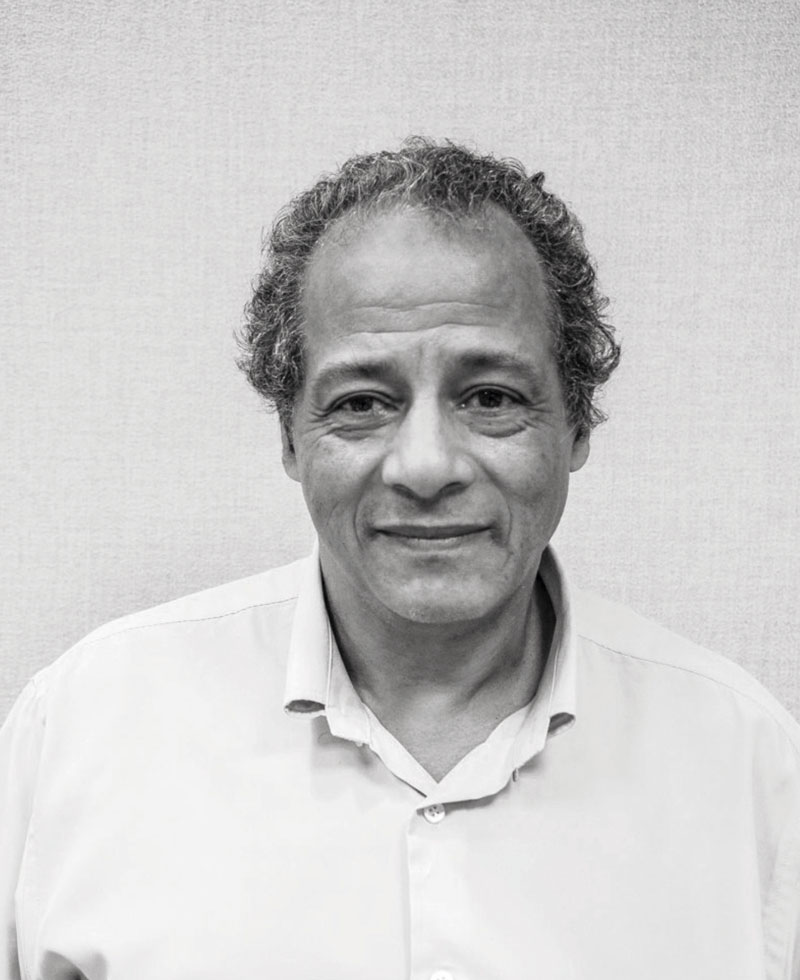
Facebook reproductionSilva in 2017: the educator spent time in prison before becoming a professor at USPFacebook reproduction
In every interview he gave, Roberto da Silva heard more questions about growing up in care and the time he spent in prison than about his academic career as a professor at the School of Education of the University of São Paulo (FE-USP). Silva, an educator from São Paulo who died on December 18, 2023, at the age of 66, did not mind telling and retelling his story. He used to say that his path in life was his working methodology: his past and his “inside” perspective were the basis for his research in social pedagogy. In his work, he argued that education could transform the future of convicts and young offenders.
Silva was 4 years old when the authorities removed him from his mother’s care in the early 1960s. She had moved to the city of São Paulo from the countryside with her four young children. After experiencing difficulties in a new city, she went to the juvenile courts to ask for financial assistance. Silva’s three siblings, all under 7 years old, were also separated from the family. Silva grew up at the National Foundation for Children’s Welfare (FUNABEM), which would later become FEBEM. At the age of 15, he found some documents through which he discovered that he had not been abandoned, and that he had siblings. Soon after, he was released from the custody of the care home. He lived on the street for years as part of the “cycle of marginalization” that he would later discuss in his theoretical writings.
After being arrested for theft, he spent five years at the São Paulo Detention Center between 1979 and 1984, where he met other boys who had grown up at FEBEM. It was there that he realized the structural nature of the perpetuation of poverty and violence. Curious and keen to learn, he began studying. In 1993, he graduated in pedagogy from the Federal University of Mato Grosso (UFMT).
During his master’s degree in education at USP, he set out to profile abandoned and orphaned boys placed in boarding schools in São Paulo between 1958 and 1964, as well as boys who had left FEBEM close to adulthood, as he had done. Silva investigated how many of them committed crimes and were subsequently incarcerated. The study, completed in 1997, was published in the book Os filhos do governo (Children of the government), published the following year by Ática. During his FAPESP-funded PhD, which he defended at USP in 2001, he analyzed the socio-pedagogical effectiveness of imprisonment as a punishment. In 2002, Silva became a professor at FE-USP, appointed after passing a competitive public application process.
“He played a fundamental role in training researchers in the field of education who investigate the issue of incarceration,” says Liana de Paula, a sociologist from the Federal University of São Paulo (UNIFESP) who specializes in juvenile justice and socio-educational care. One of his main projects was the Study and Research Group on Education During Incarceration (GEPÊ Privação). The group has offered courses at FE-USP in partnership with the Paulo Freire Institute since 2017, teaching educators who work in prisons and at Fundação Casa, formerly FEBEM. “Roberto was not afraid to get his hands dirty,” says Valdir Heitor Barzotto, vice dean of FE-USP, when talking about the educator’s commitment to implementing ideas and raising funds.
Silva created a course on Brazil’s Statute of Children and Adolescents (ECA), offered on all USP degrees, which he taught for over 15 years. He also led training courses on the subject for professionals such as custody counselors, public defenders and prosecutors, judges, and educators from Fundação Casa and other care institutes.
The educator died in São Paulo from heart and kidney problems. He is survived by his wife, Doracy Costa Oliveira, and his two children, Ana Beatriz and Roberto.
Republish